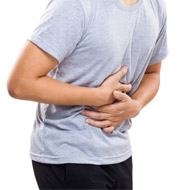Study offers 'real hope' for C.diff sufferers

In the US alone, almost 500,000 C.diff infections occurred in 2011, resulting in 29,000 deaths.
Giving spores of non-toxic Clostridium difficile (C.diff) by mouth is effective in stopping bouts of C.diff infection, according to a study published in The Journal of American Medical Association.
C.diff infection is a type of bacterial infection that affects the digestive system. It most commonly affects those who have been treated with antibiotics.
Symptoms include severe diarrhoea, a high temperature and painful abdominal cramps.
Lead author Dale Gerding, professor of medicine at Loyola University Medical Centre (LUMC), Chicago, said: "Results of this study confirm findings of earlier studies that showed that if we can establish non-toxic C.diff as a resident of the gut of the patient, that we can protect the patient from infection by the toxic strains of C.diff.”
He adds that the results are worthy of further study to confirm that treatment with non-toxic C.diff spores can reduce recurrent C.diff infection and prevent a first episode of C.diff infection in those who are taking any antibiotics and are at high risk of infection.
Dale Gerding and an international team of infectious disease researchers ran trials on 173 adult patients. Of those assigned non-toxic C.diff in liquid form, 11 per cent experienced a repeat infection within 42 days, compared with 30 per cent of those given a placebo - showing a significant reduction.
Hospital acquired infections, including C.diff, are an increasing problem throughout the world. In the US alone, almost 500,000 C.diff infections occurred in 2011, resulting in 29,000 deaths.
Stuart Johnson, infectious disease specialist at LUMC, said that the study offers 'real hope' for those debilitated by recurring bouts of the infection.



 The latest
The latest